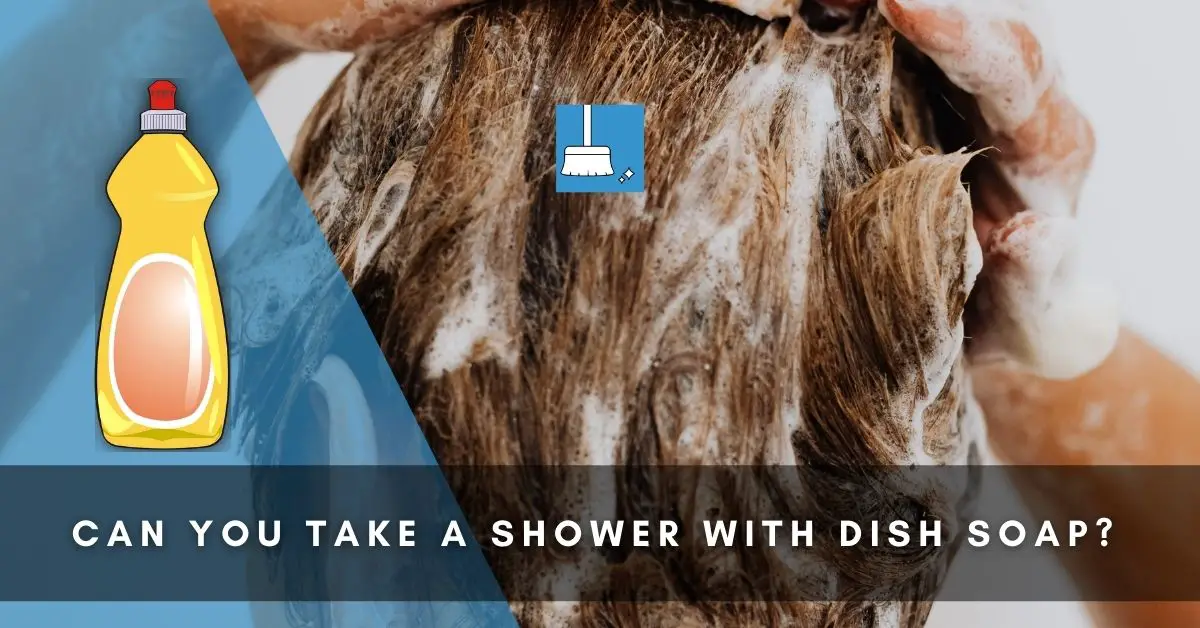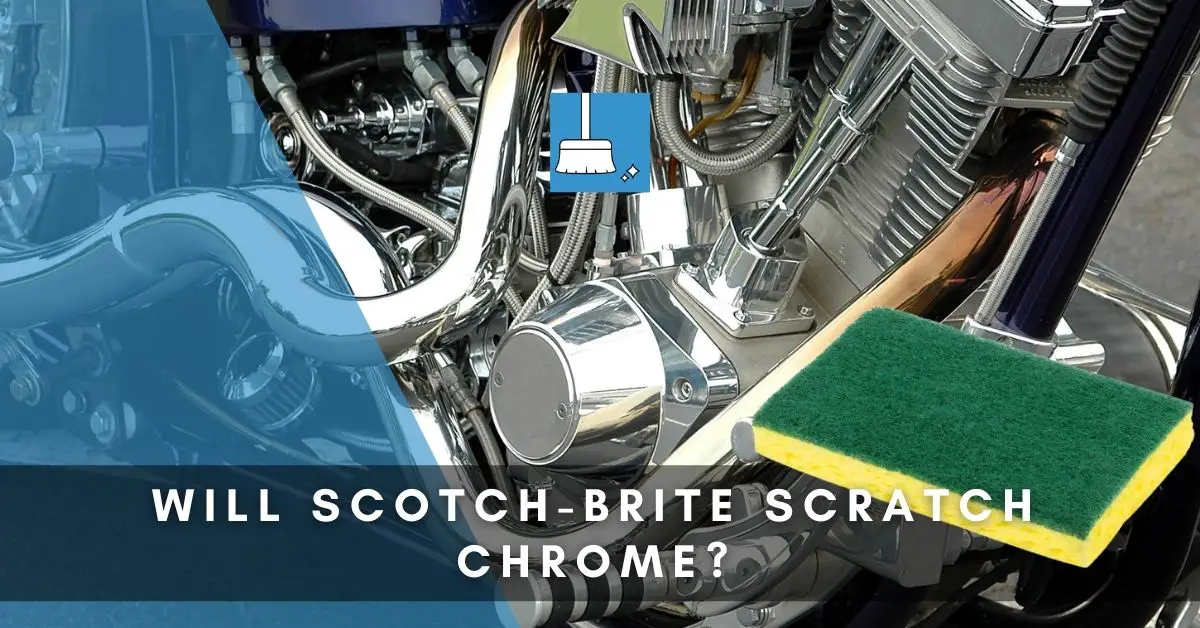You just exhausted your body wash and the only available resort at the moment is that dish soap sitting in your kitchen cabinet, and you actually need to take a shower NOW?
Sure, the dish wash can do the job –the basic job of washing—(plus it also has that fragrance). Nevertheless, before you rush to use the dish soap to wash or become paranoid about using it.
In this article, you would be discovering if a dish soap can be a substitute for your body wash or not, and why.
Can You Take A Shower With Dish Soap?
No, you shouldn’t take a shower with dish soap. All dish soaps contain certain active ingredients that were included for the purpose of lifting grease off plates, pots, pans, and other hard surfaces.
When you wash your body with dish soap, the implication is that those ingredients excessively strip the body of its oil which has a negative effect.
What Happens When The Body Is Stripped Off Its Oil After Using Dish Soap To Shower?
1- Redness Of The Skin
When the body’s surface oil is washed off, the skin reacts to it by becoming flushed as a result of the irritation that the skin feels.
Can You Take A Shower With Dish Soap?
When you wash your body with dish soap, the body might be averse to the concentration of the ingredients and begin to cause incessant itchiness immediately after stepping out of the bathroom.
3- Rash Outbreak
For sensitive skins, a single bath with dish soap can cause a sudden outbreak of rash on the body immediately after taking a shower or a day after.
How Different Body Types Will React To Dish Soap
1- Normal And Oily Skin
For individuals with normal skin, there might not be any irritation at that moment.
Nevertheless, after subsequent usage (as early as the third bath), the skin will begin to react to the chemicals’ contact by a sudden outbreak of rash.
1- Normal & Oily Skin
Dry and sensitive skin types would definitely react to the dish wash grease-stripping ingredient immediately after the shower.
The skin would begin to experience an itchy tingle incessantly and redness (depending on your skin’s color).
3 Major Ingredients In A Dish Soap And Their Effect On The Skin
Apart from the basic components used in the production of dish soap like water, fragrances, and vinegar, there are also foaming and thickening ingredients that must be added.
The following are they and their effects on the human body:
1- Sodium Lauryl Sulfate
This chemical is responsible for the frothy or lathering effect in soap which makes it easier to lift off dirt and oil from any surface.
Skincare products like shampoo also contain this ingredient (about 1% or less).
The thing about this component is that it shouldn’t stay on the skin for more than 5 minutes neither should it be continuously used because it is capable of drying the skin, making it susceptible to eczema, rash, and other inflammation.
2- Sulphuric Acid
This chemical base is often included in dish soap or liquid soap as a foaming agent in order to ensure that it foams properly.
It is another essential ingredient pertinent to the lathering of the liquid wash.
Though its concentrated level would have been reduced during production, a prolonged and frequent presence on the skin would cause slight irritation for both dry, normal, oily, and sensitive skin.
Blisters may occur when the sulphuric acid content is high in the dish soap.
3- Carboxymethylcellulose
Carboxymethylcellulose is an indispensable chemical used during soap making especially for liquid soap like dish soap.
It acts as a thickening agent in liquid soap, preventing it from being watery which maintains its longevity.
However, when you wash with anything that contains this ingredient, there are no toxic side effects that it might have on the skin.
Difference Between Dish Soap & Body Wash
Dish soap can be easily be mistaken for a body wash if its content were poured in a bowl without their bottles.
Both are liquid, frothy, and with great fragrance. Nevertheless, there are certain factors that make one exclusive for dishes and the other for the skin. Come, find out:
1- Dish Soap Is Harsher Than A Body Wash
Dish soaps are formulated to soften dried food remains and get grease off hard surfaces like cooking utensils.
On the other hand, body wash is designed with less concentrated chemicals that are targeted to be soft on the skin and unclog the pores rather than irritate them.
2- Dish Soap Dehydrates The Skin While Body Wash Restores Moisture To The Body
Dish soap as we know is designed basically to take care of food messes, stains, and grease.
Ingredients and chemicals used in their production like ammonia which is a stain-removal for utensils but a moisture-stripper on the skin.
It is for this reason, individuals are encouraged to use a hand cream after doing the dishes.
On the other hand, body washes are produced with natural ingredients that are meant to restore moisture to the body.
3- Dish Soaps Do Not Contain Antibacterial Properties In Them, While Body Wash Does
Dish soap does not fight off bacteria. You seldom find a dish soap with a certified antibacterial badge.
This is because the goal of most manufacturers is to produce a dish soap that would get read of food stains and, most especially, be able to clean grease off totally from the dishes.
On the other hand, there are various types of body wash in which many contain antibacterial properties, although the degree varies.
The goal of most body wash manufacturers is to ensure that they cleanse and fight bacteria and germs from the body.
Is Dish Soap Safe For Skin and Face?
No, dish soap is not safe for the skin and face. It isn’t totally toxic, but it is best avoided because the chemicals used in pros dish soaps are coarse.
Secondly, not all brands use a minimal amount of these chemicals as some use a whole lot which can have a negative impact on the skin.
Finally, dish soaps could cause irritation and several other reactions to the body making it susceptible to infections.
Is Dish Soap Suitable For Bubble Bath?
No, dish soap isn’t suitable for a bubble bath. Of course, it gives the same foamy effect as a regular bubble wash would; however, one should be mindful of the fact that being immersed in it would unavoidably lead to the water touching and entering the private parts which might lead to irritation, infection, rid the private part of good bacteria, or bring in bad bacteria.
What Does Washing Your Hair With Dawn Do?
While washing the hair with Dawn dish soap may not be particularly harmful, using dish soap on the hair can have different effects, depending on your hair type and what state your hair is in.
Here are a few things that can happen when you wash your hair with dawn dish soap:
1- Remove Dirt and Grease
If you have a lot of product build-up and grease on your hair and scalp, washing with Dawn dish soap can help to completely remove all that dirt build-up and clean the hair.
It will also lather really well because of all the surfactants in the product.
2- Lighten/Bleach the Hair
If you’ve colored your hair too dark or simply want to lighten your hair, then washing your hair with dawn dish soap can help. While it may not work as effectively as a professional dye, dish soap can lighten the hair color because it has mild bleaching properties.
If you intend to do this, follow the steps below:
Step 1: Apply the dish soap to the hair and leave it on for about 10-15 minutes.
Step 2: Then rinse out with warm water and dry with a towel.
3- Dish Soap Makes the Hair Dry
The hair contains sebaceous glands and natural oils that keep it shiny and lubricated.
But, when you use dawn dish soap to wash your hair it can completely strip your hair of those much-needed oils because of the harsh ingredients it’s made of.
This will in turn lead to dry hair that could result in an itchy scalp or damage to the hair shaft
What To Do If I Wash My Body With A Dish Soap
1- Use Moisturizing Mask
Immediately after using the quick fix (dish soap) to shower, apply a moisturizing mask on your face. You could purchase one that has an essential oil or menthol formulated in it.
A moisturizing mask would help revive the dried and dying cells in your face. Do well to leave it on for about 5 minutes before washing it off.
2- Apply A Moisturizing Cream
Whether you simply did the dishes, had a regular bath, or a bubble bath with dish soap, to immediately combat dryness and irritation, do well to rub your skin with the moisturizing lotion or cream to loosen the tightened skin.
3- Apply Natural Oil On Your Skin
Spritz or fall a few drops of natural oil on your skin to replenish the lost oil that had been stripped off during the shower.
These natural oils are great for the skin: olive oil, shea butter, coconut oil, rose oil, and sunflower seed oil, just to mention a few.
4- Place Cucumber Slices On Your Face
W your face is flushed and scratchy because of its reaction to the chemicals in the dish soap, cut up a cucumber thinly and place the slices on your face and even other parts of your body if you can.
Cucumbers are great skin relieverS. It is reputable for soothing inflammation, irritation, and reducing redness in the skin by infusing water and its antioxidants into the pores.
5- See Your Doctor
As stated above, having a bubble bath with dish soap may lead to the soap water coming in contact with the private parts. This would eventually lead to irritation or infection.
It is best to see the doctor soon even if you do not experience any symptoms.
Also, there are certain skin allergic reactions caused by using a dish wash to the bath that a drug would solve. Visit your doctor immediately to have your skin restored.
What Else Can I Use When I Run Out Of Body Wash?
1- Bar Soap
These are suitable alternatives to a body wash. Bar soaps designed for bathing perform similar functions as a body wash and would not cause any harm to the skin.
They are non-toxic and still provide that soapy-washy effect if soap and water is your definition of a good bath.
2- Cleansing Oils
Cleansing oils gained the spotlight in the beauty market for their body cleaning power.
Although specified for people with the dry skin type, cleansing oils are great for washing dirt off the body, rejuvenating the pores without (surprisingly) clogging it, and moisturizing the skin.
3- Dry Brushes
Need to get sweat and dirt off your body with a dry brush you can achieve that. Dry brushes, to an extent, can be seen as an alternative to body wash, but not completely.
They also perform similar functions of releasing dead cells and opening up the pores, but they can’t be used daily, lest you injure your skin.
To use dry brushing when showering, use the following steps:
Step 1: Beginning at your feet, firmly use a natural bristle brush to brush upward.
Step 2: Move the brush in slow circles and brush all the way up to the chest. Be sure to follow the contours of the body and apply pressure on thicker areas when necessary.
Step 3: After brushing all over the body, take a shower using cool water.
4- Clay
Natural clays like bentonite and rhassoul clay are great cleansers to use in place of body wash. They contain saponins and cleansing properties that draw out impurities and dirt from the skin and leave your body properly cleansed, without stripping its natural oils.
You can use any of these natural clays by following these steps:
Step 1: Add ½ cup of any natural clay of your choice to a bowl.
Step 2: Add a few spoons of water into the bowl to make a silky paste.
Step 3: Add 1-2 drops of any essential oil like lavender or lemongrass to improve the scent.
Step 4: Apply the paste evenly all over the body and leave it on for a few minutes. Then rinse off with water.
5- Body Scrubs
Body scrubs are a great substitute you can use in place of body wash and they can easily be made at home.
Using natural ingredients like honey, oatmeal, and sugars, you can create a scrub that will exfoliate the body and remove any dirt that may be on the body.
Pro Tip: Be sure to do a patch test on a small area of the skin before applying these homemade body scrubs all over the body to check if you will have any negative reactions to them. Also, store them in a refrigerator if you intend to make a large batch
Final Thoughts!
There is indeed a world of difference between dish soap and a body wash. And as tempting as easily overlooked as it might be to use a dish wash to shower, it might not actually be a great idea.
In this article, we have captured why using a dish wash in place of a shower gel or body wash is a no-no.
We didn’t just stack up the what-not-to-dos, we also unveiled other alternatives to a body wash and how to deal with side effects caused by using dish soap to take a shower.





